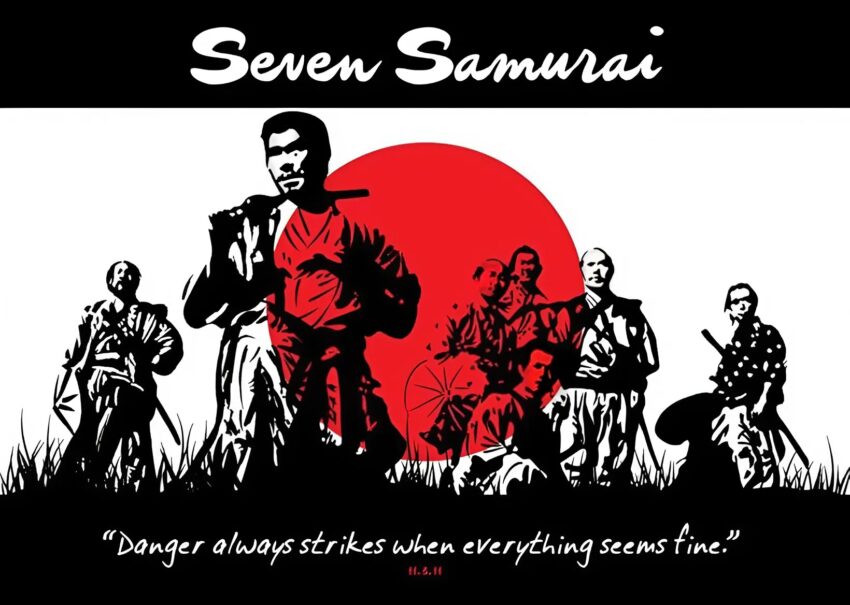Directed by Akira Kurosawa, Seven Samurai (1954) is a monumental Japanese masterpiece that redefined cinema with its gripping tale of sacrifice, camaraderie, and resilience. Starring Toshiro Mifune and Takashi Shimura, this samurai saga blends breathtaking action, rich character drama, and universal themes, earning its place as one of the greatest films ever made. Seven decades later, Seven Samurai remains a towering achievement that captivates and inspires. Draw your katana for an unforgettable journey!
The Story: Heroes Unite to Defend the Defenseless
In 16th-century Japan, a farming village plagued by bandits hires seven samurai to protect them in exchange for rice. Led by the wise Kambei (Takashi Shimura), the group includes the fiery Kikuchiyo (Toshiro Mifune), a brash warrior with a secret. As the samurai train the villagers and fortify defenses, bonds form, tensions rise, and personal stakes deepen. When the bandits attack, the battle tests courage, loyalty, and the cost of heroism. This 207-minute epic weaves action, humor, and heartbreak into a profound tale of community and sacrifice.
The Stars: Mifune’s Fire, Shimura’s Soul
Toshiro Mifune is electrifying as Kikuchiyo, his wild energy, raw emotion, and tragic depth making him a cinematic legend—his rain-soaked outbursts are unforgettable. Takashi Shimura anchors the film as Kambei, his quiet dignity and strategic brilliance embodying samurai honor. The ensemble, including Seiji Miyaguchi’s stoic Kyuzo and Yoshio Inaba’s earnest Gorobei, breathes life into each warrior, while Daisuke Kato’s romantic Shichiroji and the villagers, like Yohei (Bokuzen Hidari), add humor and heart. The cast’s chemistry elevates every moment, from banter to battle.
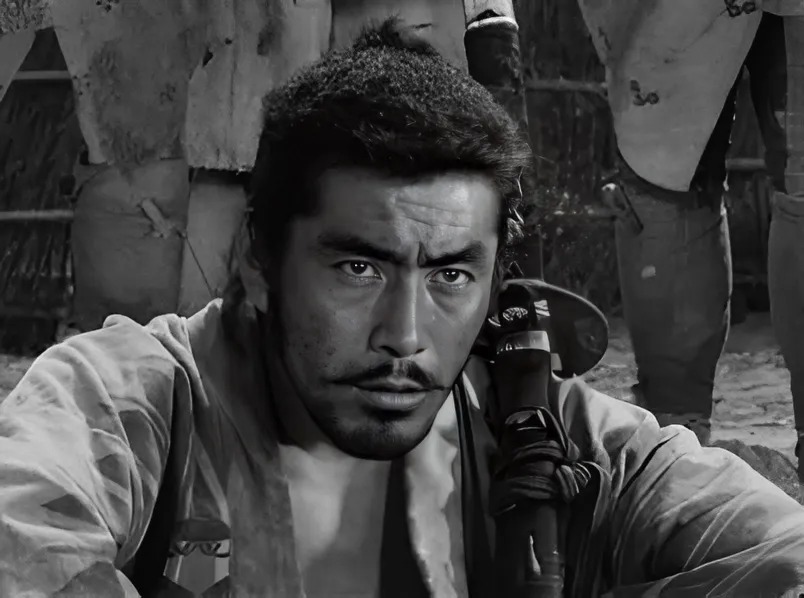
The Craft: Kurosawa’s Cinematic Genius
Kurosawa’s direction is visionary, blending meticulous storytelling with dynamic visuals. His innovative use of deep focus, telephoto lenses, and multi-camera setups (cinematography by Asakazu Nakai) makes every frame vivid, from sweeping landscapes to frenetic swordfights. The editing, co-crafted by Kurosawa, keeps the three-and-a-half-hour runtime gripping, balancing character arcs with escalating tension. Fumio Hayasaka’s stirring score, with its haunting flutes and thunderous drums, amplifies the epic scope. Shot in stark black-and-white, the rain-drenched battles and rustic village feel timelessly immersive.
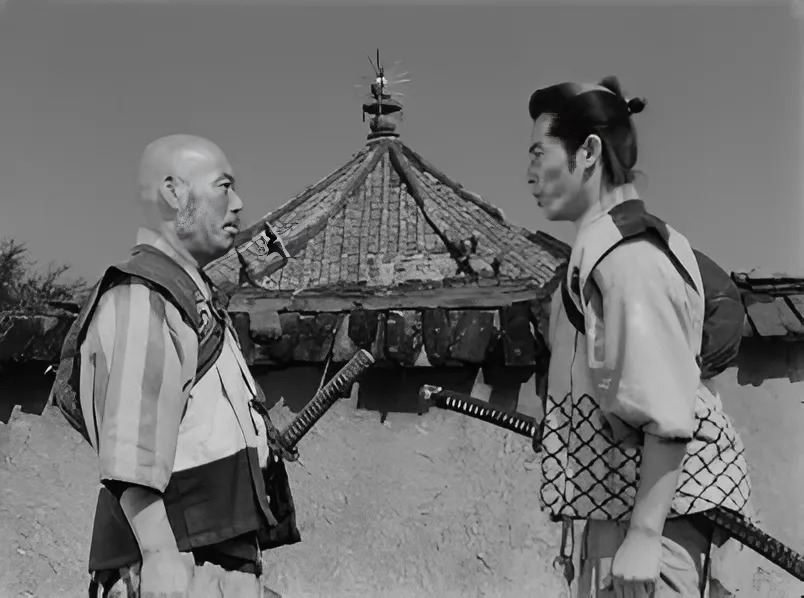
Why It Slaps
Seven Samurai is a cinematic pinnacle, blending pulse-pounding action with profound humanity. Kurosawa’s storytelling—rooted in sacrifice, class divides, and the fleeting nature of heroism—resonates universally. The samurai’s distinct personalities and the villagers’ desperation create a rich tapestry, while iconic scenes, like the final rain-soaked battle, are etched in film history. It’s funny (Kikuchiyo’s antics), heartbreaking (the fallen heroes), and inspiring (the village’s triumph). This is a film you watch to marvel at its craft, cheer the underdogs, and reflect on honor’s cost.
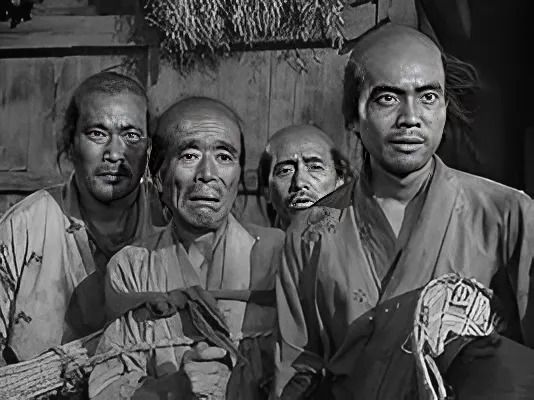
Why It Stumbles
The film’s length may daunt modern viewers, with some slower village scenes testing patience. Certain cultural nuances, like samurai codes or feudal dynamics, might require context for Western audiences. Yet, these are minor hurdles in a work so universally compelling that its impact transcends time and borders.
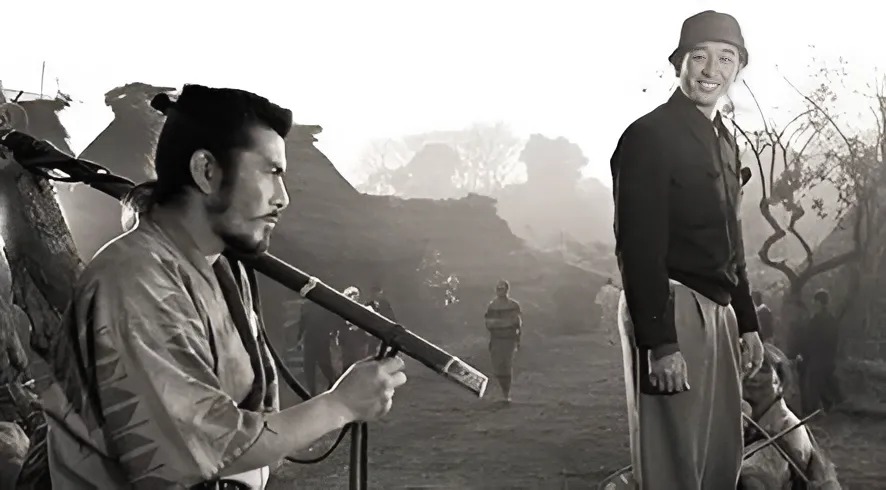
Legacy and Vibe Check
A global sensation, Seven Samurai influenced countless films, from The Magnificent Seven to Star Wars, and solidified Kurosawa as a cinematic titan. For American and English-speaking audiences, it introduced samurai cinema’s artistry, blending action with moral depth. Its themes of teamwork and sacrifice remain timeless, resonating in modern epics. Perfect for a movie night with friends or a deep dive into classic cinema, Seven Samurai is a cultural treasure that demands to be experienced.
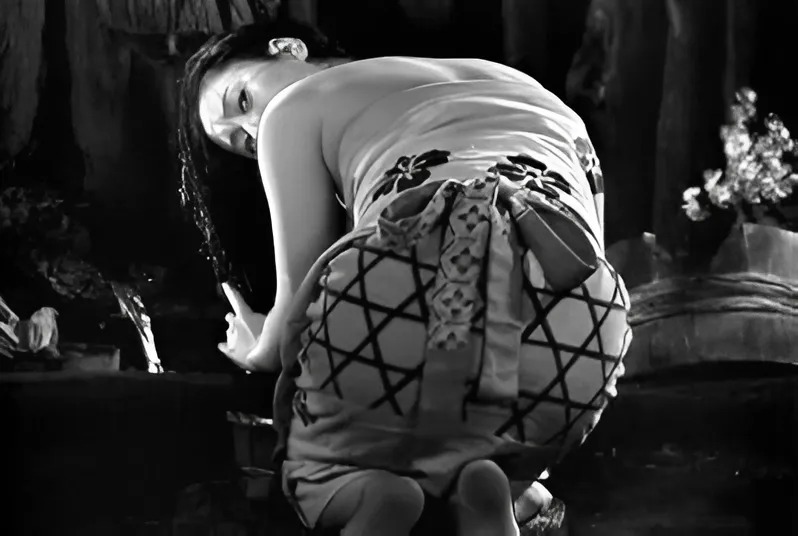
Rating: 5/5 Stars
Seven Samurai is a flawless, awe-inspiring epic that blends action, heart, and humanity into a cinematic milestone. Kurosawa, Mifune, and Shimura deliver a masterpiece that endures forever.
